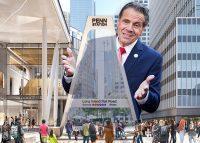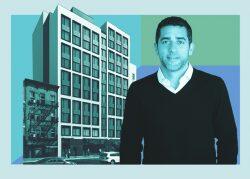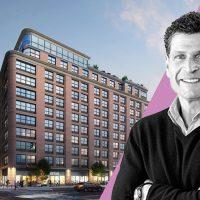UPDATED Nov. 13, 2021, 10 p.m.: After five years of getting the runaround from the Metropolitan Transportation Authority, the Durst Organization has said enough is enough.
The developer is suing the MTA over the prolonged discussions involving its three properties at Park Avenue and East 125th Street, alleging that the public transit authority’s slow decision-making, lack of diligence, changing stances and failure to cooperate have cost the company money and deprived it of its rights to use the properties.
The lawsuit, filed Friday with the U.S. District Court Southern District of New York, stems from three East Harlem properties that Durst acquired in 2016 and 2017 for future development.
The vacant lots at 1800, 1801 and 1815 Park Avenue are located within the city’s Special Transit Land Use District, which requires developers to first get certified by the MTA and the city’s Planning Commission as to whether transit easements are needed to build.
The district was created in 1973 following the construction of a small section of the Second Avenue subway. In 2017, in preparation for extending the Q line from 96th Street to 125th Street, the zone was expanded into the area including the Durst properties. That meant Durst needed an easement certificate to get construction permits.
Read more



The certification was supposed to be done within 60 days, but more than five years have passed since Durst asked the MTA about easement requirements for the properties, according to the lawsuit.
The suit says the MTA in 2018 indicated no easement would be required at 1801 Park Avenue, while some easements would be necessary for a small staircase at 1815 and an ancillary facility at 1800, but a year later the MTA board said it would need easements at all three sites.
The board shifted again in late 2019, saying it would condemn 1801 and 1815 through eminent domain. But it turned out condemnation had to be blessed by the Federal Transit Administration, which required property appraisals.
Every time the MTA shifted, the process lengthened, the lawsuit alleges, and this August the authority finally offered $40.7 million for 1801 and 1815 Park Avenue, about 16 percent more than Durst had paid four years earlier, the lawsuit said. Durst deemed the offer too small and the authority has since sat on its hands, according to the suit.
For the 0.8-acre property at 1800 Park Avenue, which Durst bought for $91 million in 2016, the MTA detailed the easement requirement in February 2020. Discussions ensued, and Durst thought they were nearing a deal, but five months later the authority said a larger easement might be needed to accommodate construction equipment.
The discussions dragged into this year and the MTA’s demands kept growing, one of which would make it almost impossible to lease certain space, the lawsuit alleged.
“Inexplicably, the MTA wants to construct a 140-foot-deep shaft under an occupied building, a process that would cause massive disruption, while they could do it much less expensively and easily directly across the street on a site they are already condemning,” said a Durst spokesperson.
Even so, the developer eventually signed the easement agreement because the development could not otherwise proceed, the lawsuit said.
But now Durst calls the MTA’s demands “excessive and overboard” and the agreement “involuntary and coerced,” the lawsuit said.
“If [Durst] refused, the MTA had made it abundantly clear that the process would never end, and no building permit would ever be issued,” the lawsuit said. “The MTA imposed an unconstitutional condition upon the [owner’s] right to obtain permits and to develop its property.”
The lawsuit seeks unspecified compensation. The MTA, which is being run by former Silverstein Properties executive Janno Lieber, initially declined to comment, citing pending litigation, but later issued a statement.
“The expansion of the Second Avenue Subway Phase 2 is a critical project that will deliver long-overdue transit connectivity to the residents of East and Central Harlem,” a spokesperson said. “As we work to achieve that goal, the MTA won’t be distracted by real estate developers trying to make taxpayers shoulder responsibility for their own project delays.”
This story has been updated with a statement from the MTA.
